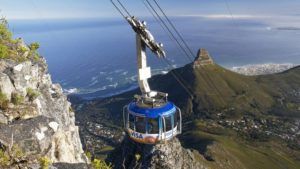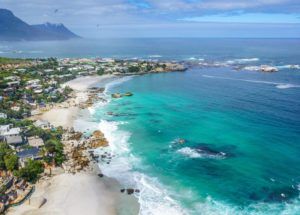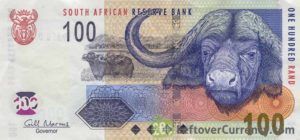General tips for travellers in South Africa
- South Africa is a fairly developed country, you will not find wild animals in the street.
- There are world-class hotels, shopping centres, gourmet restaurants and a developed highway system.
- Do not worry if you forget to pack anything because you can buy anything in South Africa, including medicines.
- South Africa is a first world/ third world country. While it is technologically advanced in many ways, things often go wrong, and sometimes things run late or not at all. Locally we call it African time. When things do not go according to plan, rather be patient and things will work out in the end.
- Do a lot of research and visit as many places as you can, including traditional tourist places and places off the beaten track. Buy souvenirs only if you really want the item. However, it is often nice to have something to remind you of your trip. The weather in South Africa is good most of the year.
- Travel out of season and you will find some bargains.
Back home.
- Always let someone at home know where you are. Give family and/or friends copies of your itinerary.
- From a safety perspective, it’s good to have several people back home who know where you’ll be. Write down the address of where you are staying. If you take a taxi the driver may not understand what you are saying due to pronunciation.
Insurance
- It is a good idea to have some travel insurance, partly because it is just wise, anything could happen, South Africa is a poor country, and the rate of petty crime is high, so there is a present danger of your unattended goods being lifted.
People and language.
- The people in South Africa are warm and friendly and very willing to share their stories and culture with you. Do not allow misconceptions about the past and apartheid to spoil your holiday.
- There are 11 official languages, most of which are indigenous to the country.
- English is spoken everywhere you go so it is fairly easy to communicate with locals. English is the language of the cities, of commerce and banking, of government and official documents. All the road signs and official forms are in English and service staff will speak English.

Tourism
- It is a good idea to book much of your travel ahead of time, you would not like to find that the tickets are sold out. However, there are a few that would be best left until you are sure what the weather will be like. Table Mountain, in particular, is closed when the weather prohibits.
- South Africa has a high unemployment rate. People are employed at filling stations to fill your car, and they provide a service, checking your oil and water and will fill your tyres. A cash tip is always welcome.
- In any parking area, you will probably find (mostly men) who are employed as “car guards” The official ones will have something identifying them. They will willingly help to carry your purchases or pack them in the car. Small change is very welcome to these people who have little chance of employment elsewhere. This is accepted practice, however, you may encounter some chancers. Ensure your car is safely locked. If you would like to tip any of these people, do it only on your return.
Animal welfare
- If you see any form of ill-treatment to animals, make a note of where, when, and what you saw it and report it. Contact details for animal welfare agents are in the Colourdots posts for each town and suburb.
Climate
- The weather in South Africa is mostly sub-tropical inland. Dry cold winters and hot summers with rainfall often in the form of spectacular thunderstorms,
- The weather in the Cape Province is Mediterranean, with hot summers and winter rainfall.
- The sun is strong in South Africa with a high UV factor, so it is advisable to wear sunscreen every day.
- Summer – December to February
- Autumn – March to May
- Winter – June to August
- Spring – September to November
Time zone
- : South African Standard Time is Greenwich Mean Time GMT + 2 hours.
- Central African Time (CAT)

Ocean currents
- You won’t be able to spend a whole lot of time in the waters along the West coast as there is the icy cold Benguela current.
- Waters on the East coast of the Cape peninsula and further along the Western Cape coast are more suited for swimming and other water sports.
- Be aware that there are localised currents and rip tides so please check before venturing out. South Africa has a very efficient and well-run National Sea Rescue Service,
- Number: Office 021 434 4011 All hours 082 990 5958.
MONEY
- The currency is the Rand, which is divided into 100 cents.
- There are R200, R100, R50, R20 and R10 notes.
- Coins come in R5, R2, R1, 50c, 20c, and 10c
- Automatic teller machines (ATMs) are situated in every mall and outside most banks in towns and cities, which operate 24 hours a day. It is advisable to use a teller machine where there are people around, such as a filling station or inside shopping malls and during daylight hours for safety reasons.
- You can also draw money at some of the larger supermarkets’ tills.
- Always carry some local cash with you. Some places do not have card facilities.
- All major international credit cards such as MasterCard, American Express, Diners Club, and Visa are widely accepted.
- Bring several debit and credit cards with you and keep them in different places. Also, bring a stash of emergency cash.
- South Africa is a very affordable destination, particularly when visiting from a country with a stronger currency. However, here are some ways to save money while travelling through the country:
- Visit South Africa during the off-peak season.
- plan a trip to South Africa in autumn (March to May) or spring (September – November). The weather is pleasant and the costs are lower.
- Let your bank at home know that you will be travelling.
- Don’t change your currency at the airport, that’s where you’ll get the worst exchange rates.
- Take great care of your contactless cards, it is not common, but thieves can use contactless card readers in crowded areas by ‘bumping’ into you.
VAT
- Value-added tax is levied on goods in South Africa, some foodstuffs are exempt from tax, however. International travellers can reclaim this tax on exiting the country
- This rebate is applicable on goods but not on services
- There are VAT offices in Johannesburg, Durban and Cape Town.
- If you want to claim your VAT back, you will need to submit your invoices, and when they are approved, you will be refunded
Electricity
- The South African electricity supply is 220/230 volts with sockets accepting either two-pin or three-pin rounded plugs. Hotels often have 110-volt sockets for electric razors and a USB socket for other electronic items.
- A travel (power plug) adaptor will be needed for the South African round 3-pin plug.
Water
- The water from the taps in South Africa is perfectly safe to drink. Bottled water is available but this is an unnecessary expense.
- From time to time South Africa experiences drought conditions and water is restricted. Please be careful to avoid wastage of water
Mobile phones
- Luckily, in South Africa, mobile phone coverage is extensive and easy to access. You can buy a local SIM card from one of the four key mobile networks in South Africa: Vodacom, MTN, Cell C and Telkom.
- You can do this at the airport when you arrive. You will not be unplugged from the outside world or family and friends back home while travelling in South Africa. Reception and internet speeds are great in major cities and towns, but the reception is less reliable out of town.
- You will, however, have to have your phone unlocked before you leave home to do this. A local SIM can only be used on SIM-unlocked GSM phones.
- The international dialling code for South Africa is 27.
Emergency numbers: 112 for any emergency from a cell phone, 10111 for police response, 10177 for an ambulance response. - Do not fall for offers of “free” unsecured Wi-Fi hot spots as thieves can access your passwords. Rather use the hotel or coffee shop. Encrypt your online activity.
- Back up your data at all times
Accommodation
- There are many options for accommodation in South Africa, from five-star hotels to backpackers hostels to camping facilities, you will find that most facilities are world-class.
- Among the choices are boutique Guesthouses, hotels, self-catering facilities, and camping. There are also many Airbnb establishments throughout South Africa
- There are also a variety of well-maintained, affordable campsites throughout South Africa, from Tsitsikamma National Park to Kruger National Park and many in-between.
- Check some interesting options
Getting around
- Public transport is certainly not reliable, and there isn’t much of a system in place. However, in Cape Town, the “MY CITY” buses are affordable and reliable.
- However, travelling around South Africa is possible by air, road, and rail.
- Uber is great for shorter trips and to get around in the major cities. This service is convenient, practical, and cheaper than metered taxis. Background checks are done on the drivers to make sure their driver’s licenses are real.
- When walking, never appear lost if you can help it, this can make you seem vulnerable to criminals who may try to rob you. Try to look as if you know where you are going
- Concerning other taxis, take a photo on your phone of the local taxi rates in case of any dispute with a driver.
- Take a photo of the taxi/cab’s number plate on your phone, should you leave anything behind you can contact them. –
Driving
- -Most car hire companies have branches in South Africa. There are also some reliable smaller independent vendors.
- You will need an international driver’s licence.
- South Africans drive on the left-hand side of the road.
- The speed limit on the highways is generally 120km/h and in built-up areas 60km/h unless otherwise signposted.
- It is mandatory to wear seatbelts, and cell phones may only be used with a “hands-free” capability
- South African roads are generally good, however. There are toll fees to pay on some routes. Cash or debit cards are accepted. –
- The fuel stations are called garages –
- Keep the car doors locked. The windows should also not be wide open when you stop in town, belongings can be stolen through the windows.
- Hijackings are common, keep valuables out of sight and stay alert. –
- Never leave your belongings on view in your car. Avoid driving alone at night, particularly if you do not know where you are going
- Helmets are mandatory on motorbikes.
- At traffic lights, don’t be surprised to see people selling all sorts of items at busy intersections. These items range from newspapers to toys, bags, and electronic accessories, among others.
- Apart from selling items, you will also find some guys begging, collecting rubbish or handing out flyers. I would politely decline if not interested.
Eating
- A trip to South Africa is guaranteed to include some very good food as the country boasts a large variety of restaurants from fine dining to casual eateries.
- Most supermarkets are also stocked with a wide range of produce making self-catering very easy. –
- South African meat is of a high standard and “braais” (Barbeques) are held frequently. Any social gathering is likely to have a braai going on. –
- To get a REAL taste of a country, try a local cooking lesson, more rewarding than just watching a TV cook show.
Eating
- Traditionally in South African restaurants, waiters do not automatically bring the bill at the end of the meal but will wait until you ask for it.
- Tipping the waiters is appreciated as they are paid a minimum basic salary. Tips are usually calculated at between 10 and 15 %
- Smoking is prohibited in all public buildings. There are designated smoking areas in some restaurants or smokers may smoke outside.
- Taking home what you cannot finish eating in a “doggy bag” is a common practice in South Africa.
Dress
- You will not need to purchase any special clothes either for a safari or other travel in South Africa. You will not want to look like a tourist and you should blend in as much as possible.
- Some establishments stipulate smart casual and a shirt with a collar, with trousers or slacks is the dress code, for ladies, a blouse and skirt or smart pants are requested.
Safety
- Blend in as much as possible and avoid looking like a tourist. —
- Do not wear expensive jewellery and take extra care of your devices, it is just tempting fate in a country where so many people are poor.
- Do not give money to beggars, South Africa has a high level of poverty and homeless people. Often money given is used for drugs and alcohol. There are registered charities that help homeless people. If you want to help, rather find an appropriate charity to donate to, they would be very grateful.
- Tipping is widely accepted in South Africa. The wages are low and the extra is always appreciated
- Tipping is usually calculated at between 10 and 15% of the bill.
- Do not walk alone, on beaches or hikes. Particularly at night
- Be careful accepting advice from strangers at ATMs Be especially careful when withdrawing a large sum of cash. Preferably use a machine inside a shopping centre of at a filling station.
- Do not leave valuables in your suitcase. Airports in South Africa have a bad reputation for pilfering. Do not leave any items unattended.
- Store valuables (including passports) in the safety deposit box of your accommodation
- Do not feed wild animals. Do not get out of the car when they are around. Even baboons can be dangerous and will snatch food away from you.
- Take a whistle with you for security… if someone is following you or giving you unwanted attention, then blow it.,
Taking pictures
- Take lots of pictures. With today’s digital cameras, you can always edit at a later stage. Rather than not having a record of your adventures.
- Be careful asking people to take pictures of you, there is always a chance your phone can get stolen.
- -Beware of any people asking this favour of you as the phone could be damaged and they could blame you and demand money
- Buy a few SD cards and change them daily so if your phone is lost or stolen you won’t lose all your pictures
- -Always ask permission before taking pictures of locals, often a tip will be welcome to “models”
- -It is a good idea to take pictures of the car you are renting in case of any issues when returning it.
Watch this short video about safety in Cape Town


